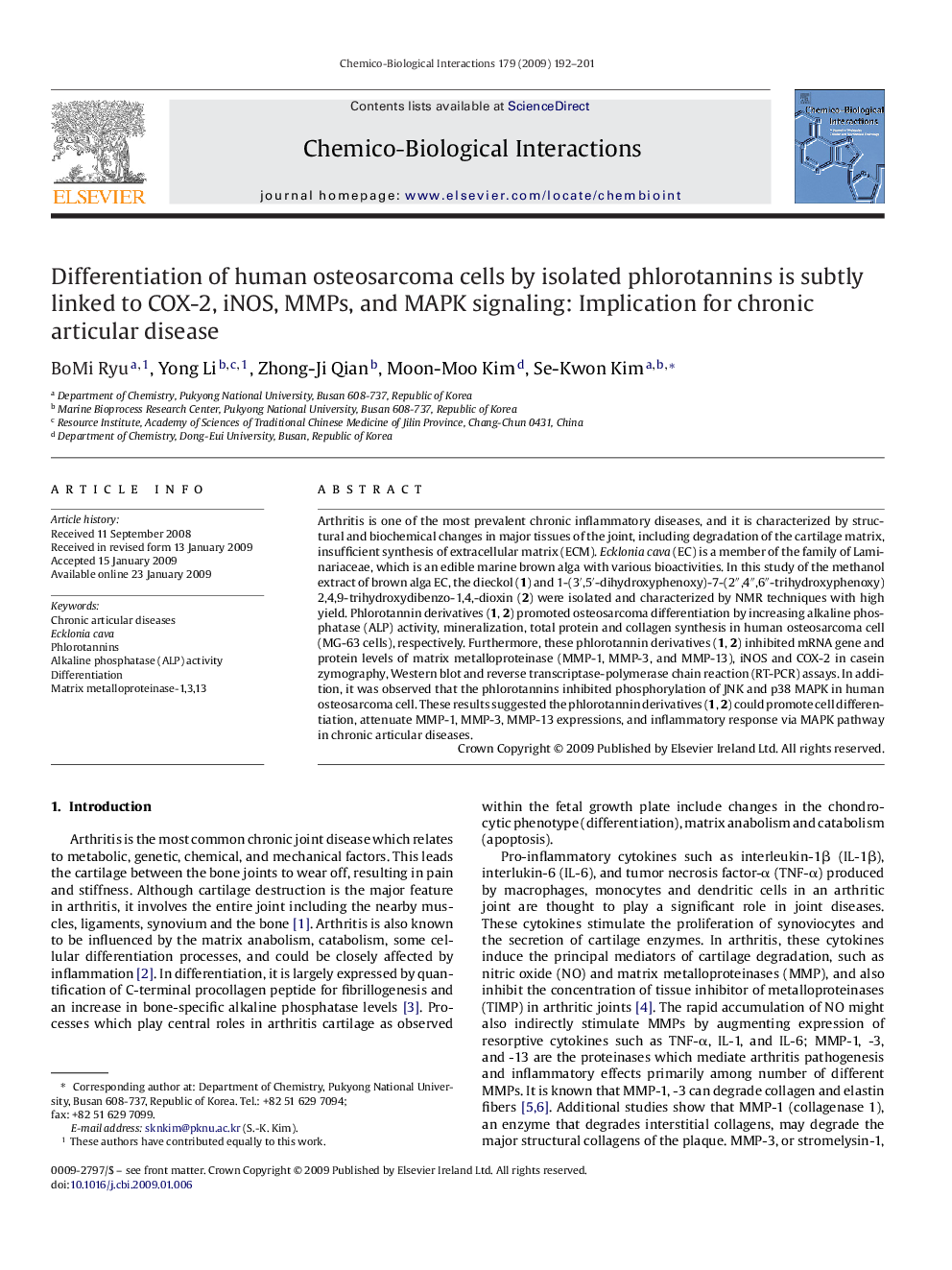| Article ID | Journal | Published Year | Pages | File Type |
|---|---|---|---|---|
| 2582225 | Chemico-Biological Interactions | 2009 | 10 Pages |
Arthritis is one of the most prevalent chronic inflammatory diseases, and it is characterized by structural and biochemical changes in major tissues of the joint, including degradation of the cartilage matrix, insufficient synthesis of extracellular matrix (ECM). Ecklonia cava (EC) is a member of the family of Laminariaceae, which is an edible marine brown alga with various bioactivities. In this study of the methanol extract of brown alga EC, the dieckol (1) and 1-(3′,5′-dihydroxyphenoxy)-7-(2″,4″,6″-trihydroxyphenoxy) 2,4,9-trihydroxydibenzo-1,4,-dioxin (2) were isolated and characterized by NMR techniques with high yield. Phlorotannin derivatives (1, 2) promoted osteosarcoma differentiation by increasing alkaline phosphatase (ALP) activity, mineralization, total protein and collagen synthesis in human osteosarcoma cell (MG-63 cells), respectively. Furthermore, these phlorotannin derivatives (1, 2) inhibited mRNA gene and protein levels of matrix metalloproteinase (MMP-1, MMP-3, and MMP-13), iNOS and COX-2 in casein zymography, Western blot and reverse transcriptase-polymerase chain reaction (RT-PCR) assays. In addition, it was observed that the phlorotannins inhibited phosphorylation of JNK and p38 MAPK in human osteosarcoma cell. These results suggested the phlorotannin derivatives (1, 2) could promote cell differentiation, attenuate MMP-1, MMP-3, MMP-13 expressions, and inflammatory response via MAPK pathway in chronic articular diseases.
